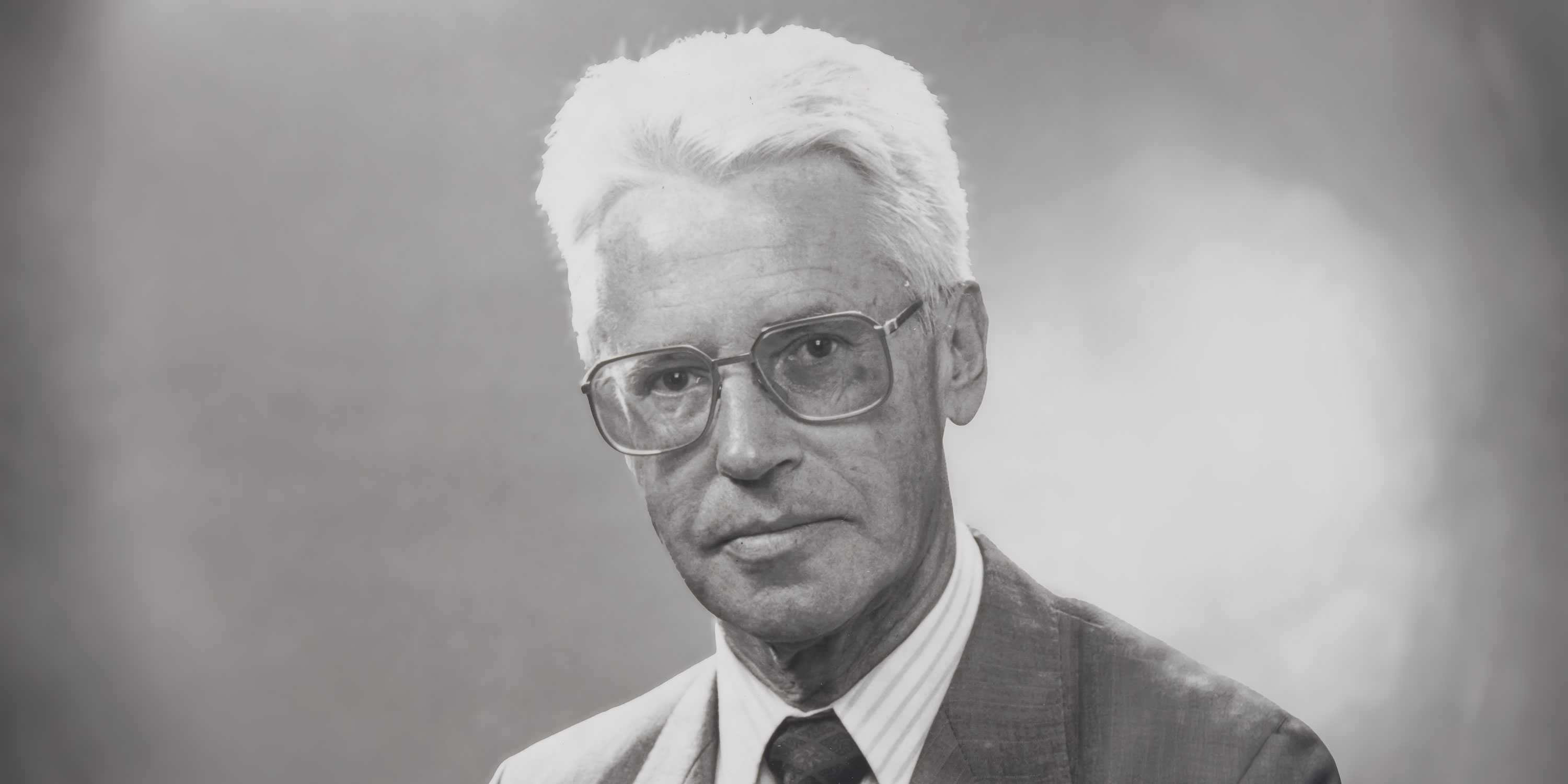Former ETH President Heinrich Ursprung deceased
Heinrich Ursprung was President of ETH Zurich from 1973 to 1987. He led the bilateral negotiations between Switzerland and the EU in the field of research in his capacity as State Secretary in the 1990s. This influential figure in the Swiss higher education landscape passed away shortly before his 92nd birthday.

Heinrich Ursprung was not only a highly committed scientist but also a man who championed the interests of science in the political arena. “He played a key role in shaping the university landscape in Switzerland, first as President of ETH Zurich, then as President of the Swiss School Board – the current ETH Board – and subsequently as the first State Secretary for Science and Research. We are still benefiting from his initiatives today,” says Joël Mesot, President of ETH Zurich.
International career as a scientist
Heinrich Ursprung was born on 13 March 1932 in Zurzach, where he also attended school. He began his academic career at the University of Zurich, where he studied natural sciences from 1952 to 1956, going on to obtain his Doctorate in Biology in 1959 and working as a research assistant. In the 1960s, he moved to Johns Hopkins University in Baltimore, where he served initially as assistant professor and then as full professor in 1968. In 1969, the Federal Council appointed Ursprung Full Professor of Zoology at ETH Zurich, where he set up the new Developmental Biology Lab for his main field of research.
As a professor, Ursprung published works on developmental biology and received numerous awards and honorary doctorates. He was a committed researcher and educator, always open to new developments, especially in the field of biology, as demonstrated by his successful teaching career. He was also an attentive listener and was interested in alternative ideas and suggestions.
ETH President during challenging times
In the summer of 1973, Federal Council member Hans-Peter Tschudi offered Ursprung the presidency of ETH Zurich. “And then he said that he forbade me – his very words – from continuing to be active in research, giving lectures, writing or editing books, or assuming the role of president of a professional association. The reason he gave: The ETH presidency is a full-time position that requires your 100 percent commitment,” Ursprung said with a smile in a 2016 interview in which he described the circumstances of his election as President of ETH Zurich and Vice President of the Swiss School Board – the predecessor organisation of today’s ETH Board.
In his role as President of ETH Zurich, Ursprung was a very strong leader during a difficult phase for the university. From 1974 to 1986, for example, a personnel freeze rendered anything new possible only on condition that they replaced the old ways of the past.
Ursprung had a lasting influence on the ETH of today. He was ahead of his time when it came to appointments. In the same interview, he told how he chaired all committees himself and put forward 129 appointments from 6,700 applications to the ETH Board over his 14 years in office. He already engaged in headhunting and poached researchers from top US universities for fields of future research. He also played a leading role in the introduction of the new disciplines of computer science, biotechnology and materials science.
Ursprung’s major influence on the ETH Act
Even after his time as ETH President, he continued to exert an enormous influence on the ETH Domain. From 1987 to 1990, he was President of the Swiss School Board, and from 1990 to 1997 Director of the Swiss Science Agency (the predecessor organisation of today’s State Secretariat for Education Research and Innovation (SERI) – from 1992 in the capacity of State Secretary.
As a great supporter of scientific networks, Ursprung contributed to the formulation of the ETH Act that was drafted at the time. The Swiss School Board was replaced by the ETH Board and ETH Domain with its two federal institutes of technology and four research institutes. As State Secretary, he led the bilateral negotiations between Switzerland and the EU in the field of research collaboration and introduced priority programmes in Switzerland as an instrument of federal research funding.
He will be held in honourable memory by the ETH Zurich community, his former staff and students, and his colleagues.
Comments
No comments yet